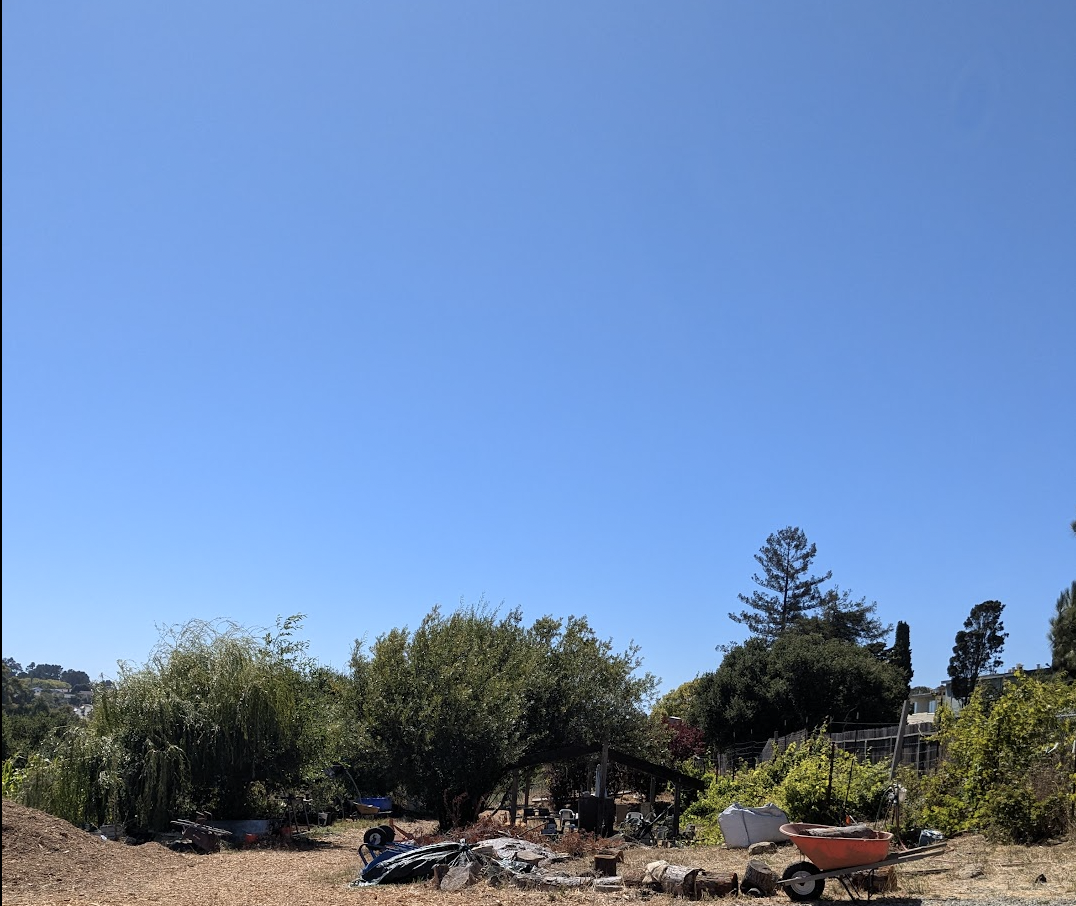El Sobrante means leftovers. It’s a “census designated place,” not quite urban, not quite rural. It’s the edges, it’s whatever was leftover.
Planting Justice’s Mother Farm grows fruit trees for cuttings and nursery stock in El Sobrante, down a long driveway between two houses in Contra Costa County. I met folks involved with the Planting Justice nursery and farm at the All of Us or None Community Giveback a few years ago. Because I missed the fruit tasting last week, now I am here to work. Mark, who has been encouraging me to swing through, is growing a native flower garden alongside the orchard. The fuschia blossoms are long pink tongues that lap the breeze from the Bay coming up the hill from the West. Stand on a pile of woodchips for a view of Tam on the horizon, at an almost familiar angle.
Farm stewards and volunteers cut plums for jam making, and we talk about our history with plants. Eventually José and I are deluging Izzy with info on how to start a native plant garden: salvias and juncus and cuttings and rhizomes and mulch (get your free soil at Gill Tract Farm, get your Matilija poppy from under the Bart tracks in El Cerrito, I learn). José started with plants by growing the roots of green onions back into plants, in 2020. I grew a baby on milk and our four-year-old learned to ride a bike. Everyone needed a project during lockdown. Afterward, José started working at Annie’s Annuals, now he works at Planting Justice. Now he’s plant people.
It’s quiet except for a rooster and a few barks from the neighborhood dogs. We sit under the trees outside. We cut the plums until the buckets are empty.
There had been a freezer disaster. Because nothing could ever be more disgusting than cleaning up after children with norovirus—with which I am too, too familiar— take on the task of emptying out the containers of rotting, moldy, fermented fruit that had been unknowingly defrosted and contaminated the freezer. Then I pump out the meltwater. It doesn’t smell that bad, actually, if you don't mind things being a little vinegary. No one has vomited in it, a huge plus. I top the extracted pile of rotting peaches and apples with wood chips. There is no such thing as food waste when it goes back into the plants, grows more fruit next year.
Farmwork is a lot like childcare, in that there’s just a lot of cleaning. Buckets at the Planting Justice Mother Farm are scrubbed, and soaped, and emptied, and scrubbed harder. My good enough attitude toward cleaning never quite cuts it in food prep situations. Washing outsides and edges and inside again as far as my arm can reach. While other hands stake and cage the avocado trees, weigh and organize the bags of plums. You only stop when the work is done. The work is never done. The buckets eventually are clean, health inspector clean; I straighten back up into the afternoon and remember I should have been using my knees this whole time.

